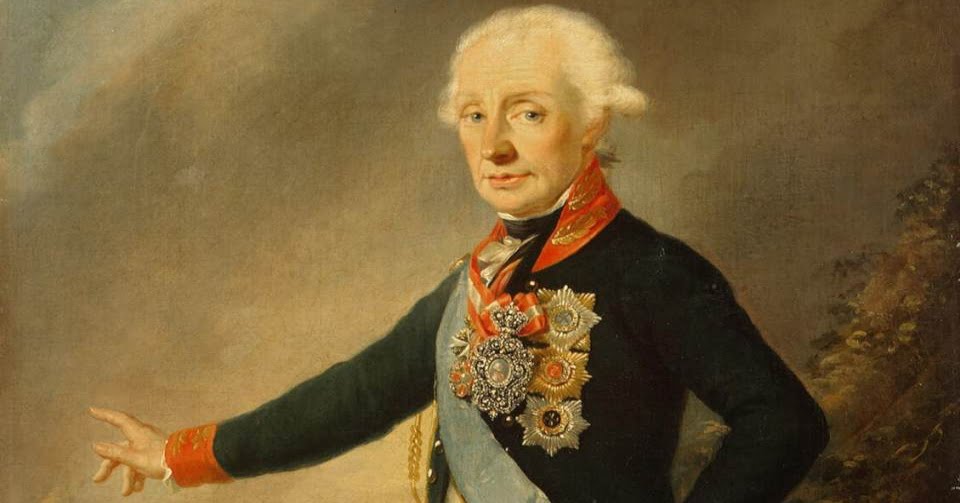According to established opinion, the author of the catchphrase about the soldier and the general was the great Russian commander. We checked if this is true.
The fact that it was thanks to Alexander Vasilyevich Suvorov (1730–1800) that the famous aphorism appeared is stated on many Russian official resources. Among them are websites of educational institutions: Higher School of Economics, Voronezh State Pedagogical University, Murmansk State Technical University, Academy of Modern Infocommunication Technologies, School of Engineering and Technology, schools and gymnasiums St. Petersburg, Novosibirsk, Nizhny Novgorod and many other cities. Such organizations as Ministry of Emergency Situations, Ministry of Internal Affairs, Presidential Grants Fund And "Immortal Regiment of Russia".
And indeed: who else but Suvorov, the author of many military aphorisms and the famous "The Science of Winning", be the father of an instructive phrase? However, the reality turns out to be different. In many reference books, including the Encyclopedic Dictionary of Catchwords and Expressions, edited by Vadim Serov, about this quote it says:
“From the collection “Soldier's Notes” (1855) by the Russian writer Alexander Fomich Pogossky (1816–1874), nicknamed by his contemporaries “military Dahl.” In his collection of aphorisms and teachings, stylized as folk proverbs, there is the following expression: “A bad soldier is one who does not think of being a general, and even worse is one who thinks too much about what will happen to him” (Poly. collected works. A.F. Pogossky. T. I. St. Petersburg, 1899). The first part of this phrase became popular.”
Unfortunately, one of the most popular modern resources on catchphrases contains an error that apparently migrated there from the Soviet reference book “Catchwords: literary quotes, figurative expressions"(1960). The fact is that Alexander Pogossky was far from the first writer to use this aphorism.
IN "Collection of 4291 ancient Russian proverbs" edited by Anton Barsov, published in 1770, one encounters another wisdom, somewhat distant in form, “Every soldier wants to be a general, and a sailor an admiral.” But a version more similar to our aphorism, “The thin officer is the one who does not think of becoming a field marshal,” is present in the journal of Maxim Nevzorov "Friend of Youth" for May 1811. The magazine also mentions “Field Marshal” "Son of the Fatherland" in 1818. In the “Complete collection of Russian proverbs and sayings, arranged in alphabetical order” (1822), edited by Dmitry Knyazhevich, you can find expression "A skinny soldier who has no hope of becoming a general." So, apparently, by the beginning of the 19th century, various variations of this aphorism were in circulation among the people. In the story of the little-known writer Pyotr Sumarokov "First Lesson in Love and Fame" (1833) there is already a variant “A bad soldier is one who does not hope to be a general”, also called a “proverb”. In the same form the expression appeared in “Stationery tutorial"(1839) Fyodor Rusanov.
But in the works of Alexander Vasilyevich Suvorov and his documentary biographies there are no such statements. Perhaps the emergence of a false association was facilitated by the writer, critic and eternal opponent of Pushkin, Thaddeus Bulgarin. His artistic biography “Suvorov” (1843) describes scene with the participation of young Alexander Vasilyevich, his father and Abram Hannibal, Pushkin’s great-grandfather. Alexander tells his parent that he wants to begin his service with the rank of soldier, because he “wants to be a field marshal.” To which Hannibal reacts: “Great! The late Emperor Pyotr Alekseevich always said: a bad soldier is one who does not hope to be a general!” And now only four years pass, and Vladimir Burnashev in his "Guide for young people appointing themselves to trade" (1847) calls the expression “Suvorov’s proverb.” And in “Essay on the Ethnography of the Jewish Population in Russia” (1866) Moses Berlin attributes these words to Napoleon Bonaparte. In fact, the emperor (already former at that time) in 1816 stated, that under him “every soldier hoped to become a general,” which, apparently, later influenced attribution Napoleon's famous aphorism: “Every soldier carries a marshal's baton in his knapsack.”
Thus, the statement attributed to Alexander Vasilyevich Suvorov is a folk saying, known in several versions. The commander himself, as far as can be judged now, did not utter such words.
Incorrect quote attribution
Read on topic:
1. "Collection of 4291 ancient Russian proverbs" (1770)
2. Konstantin Dushenko. “Every soldier carries a marshal’s baton in his knapsack.”.
If you find a spelling or grammatical error, please let us know by highlighting the error text and clicking Ctrl+Enter.






